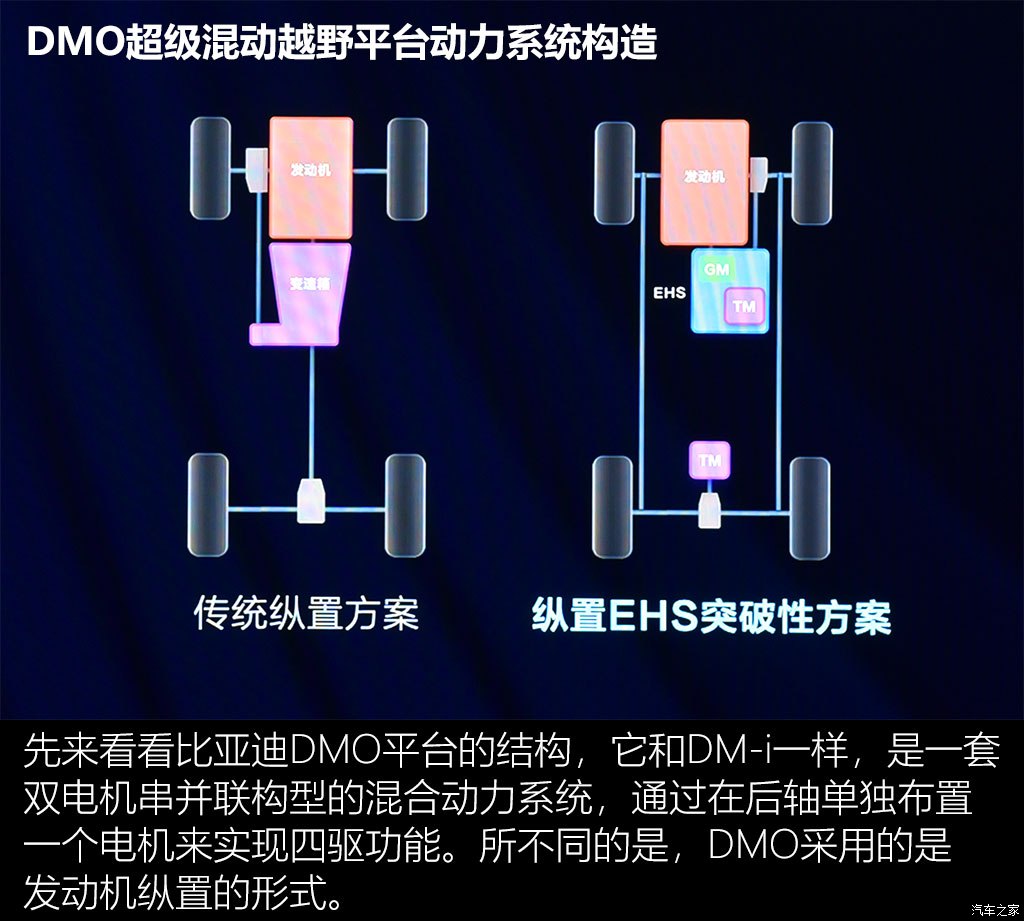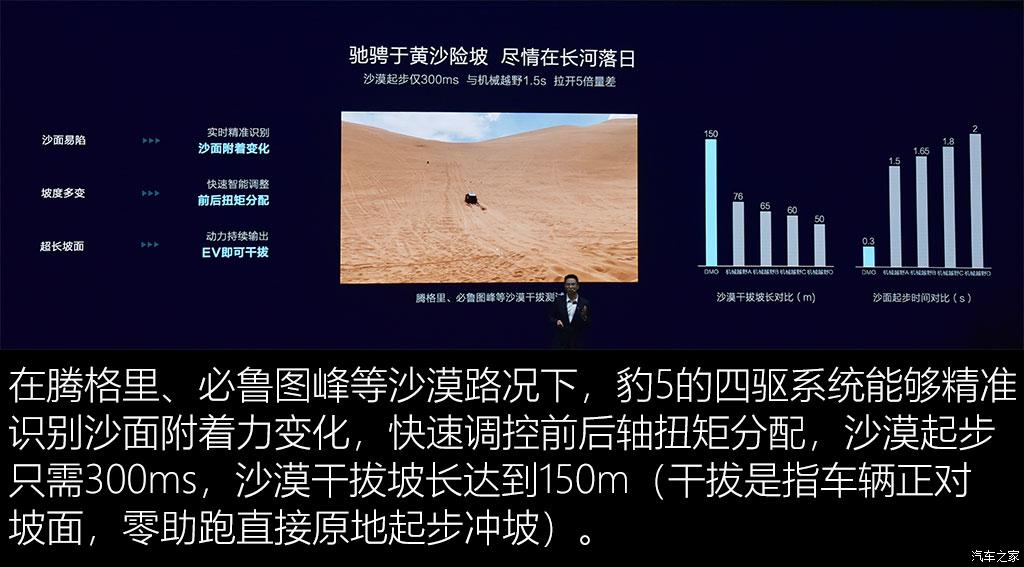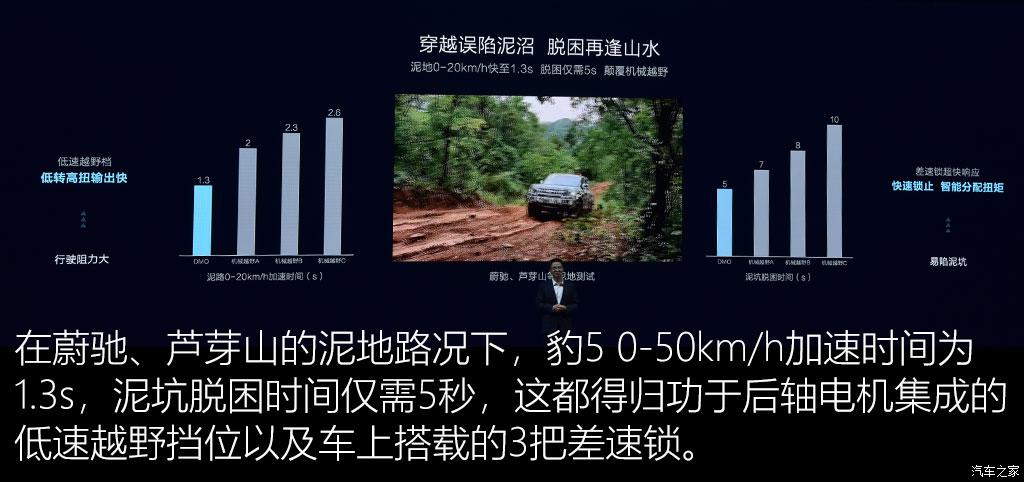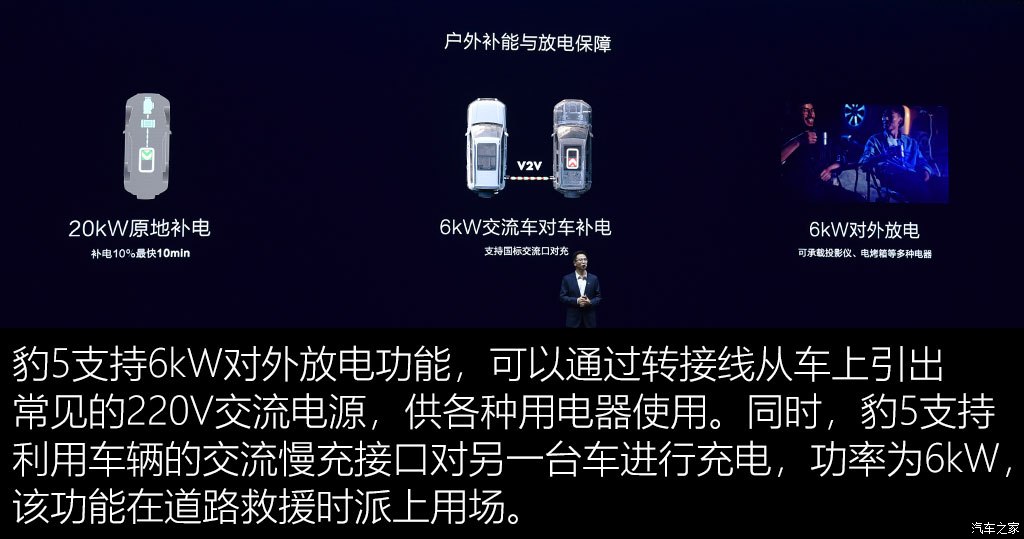80 domestic films versus 7 imported films. Who will be the "new troika"

This article was first published in "Movie Rising Potential". Welcome to WeChat search filmmore for attention.
1905 movie network exclusive Since it was released on July 2nd, it has earned 252 million box office in five days, leaving the two co-productions in the same period and "So … Married with Black Powder" far behind. What happened to this year’s "Domestic Protection Month", which was supposed to be an annual event, was that Hollywood blockbuster films and domestic films grabbed the box office?
In fact, in addition, there are six imported films including, and in July and August this year. This made many media exclaim, "This year’s domestic protection month has disappeared!" . The "protection month", which has not been renamed for more than a decade, is now dead in name only.
["Protection Month" really disappeared? 】
What is the origin of the imported film "Seven Samurai"?
These seven films include not only the four imported ledger films mentioned earlier, but also three imported buyout films — And the Indian film baahubali. The latter two films have a high evaluation. Song of the Sea was nominated for the 2015 Oscar, with almost zero bad reviews. However, the two films have been released for a long time in China, and most of the people who are interested have seen them through various channels, which is not a big threat, but it does not rule out the possibility of a dark horse.

Three imported buyout films will be released soon, among which the animated film Song of the Sea was nominated for an Oscar.
Let’s take a look at the strength geometry of the four Hollywood blockbuster films. Teenage mutant ninja turtles 2 can be regarded as a special case. It can avoid the "Import Protection Month" where Hollywood blockbusters are crowded together, and it can be successfully ranked in the July file without the backstage support of Wanda and ali dad (the China capital behind "Turtle 2", please click here to review).
Among the remaining three films, two are cartoons. Although the sales and reputation are good, cartoons have limited influence on the box office. The late arrival on August 23 can only be regarded as barely catching the last bus of the "summer file".
The Secret Life of Pets, which landed on August 2nd, was caught in the middle of the movie, but it looked quite threatening. The film was created by Minions’s original team. The trailer of Meng Bleeding has captured many fans. The freshness of rotten tomatoes is 84%. It is estimated that at that time, China’s "shovel officer" will be on the move, and it is unknown that it may be able to replicate the miracle of Minions.
As for The Return of Mount Tai, which was released on July 19th, the freshness of rotten tomatoes has dropped to 35% since it was released in North America for five days on July 1st. It is a "pseudo-blockbuster" with an old theme and a somewhat boring value in off the charts, so it is a question mark for American audiences to buy it or not.
It is worth noting that in the past few months, a large number of Hollywood blockbusters landed on the China screen simultaneously with North America, but in July and August, these four films were all delayed by about three weeks to one month. Except "teenage mutant ninja turtles 2", all the other three films were released on Tuesday, which will have a more or less impact on the box office, which is another degree of "domestic protection".
From this point of view, the four blockbusters that have been released are not as voracious as expected, but the real blockbusters have long been blocked from the door. It will be released in the United States on July 29th, while mainland fans will have to wait until September 2nd to get a glimpse of it. North America’s films released on July 22nd and August 5th were once reported to be packed into the protection month, but up to now, the schedule has not been determined, which may be run out of luck.
"Protection Month" is not monolithic.
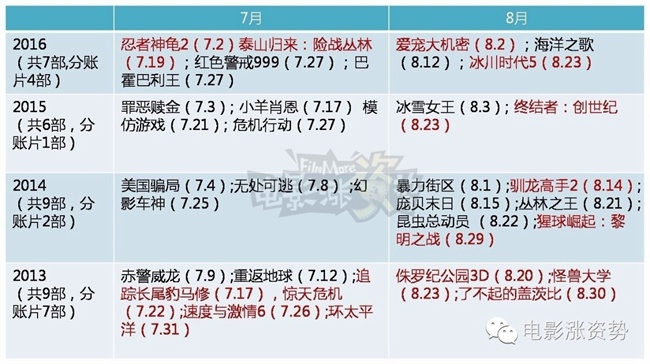
List of imported films in July and August, 2013-2016 (in red, separate accounts)
The above table counts the arrangement of imported films in July and August since 2013. It can be seen that the legendary "protection month" is not monolithic, and a certain number of imported films will "see the needle" every year. But most of these imported films have several characteristics. First, there are many cartoons, and one or several animated blockbusters can get "Amnesty" every year — — After all, it’s summer vacation. How come there are so few cartoons?
Second, "grasp the big and put the small", strictly control the sub-accounts, and you can see the needles when approving films. In 2015, for example, four buyout films were released in July, but the combined box office of the four films was only 110 million. On the first day of the release of the sub-account film released on August 23 of that year, it easily won 168 million box office. The following table is a list of Hollywood blockbusters that have been postponed in recent years. It can be seen that it is more difficult for real blockbusters to enter the summer protection month than to "plug in".

Incomplete list of Hollywood blockbusters postponed for summer release
Third, the "Protection Month" seems to be divided into different years. In 2015, the protection policy was very strict. It was not until August 23 that the blockbuster Terminator: Genesis appeared. Since June 23, domestic films have occupied the box office champion in the mainland film market for a record 61 consecutive days, which is also an important reason for the phenomenal and "troika" to emerge. In the summer of 2012, there was also a case that no Hollywood blockbuster appeared in the mainland market for one month.
In 2013 and 2014, it was relatively loose, with nine films in number, especially in 2013. At the end of July, there were two Hollywood sub-accounts. "Pacific Rim" beat "Tiny Times 1" at the box office of 690 million to become the champion of the summer file that year. As a result, the policy of "protecting the month" has been relaxed, which is not unrelated to the record achievements made by domestic films such as "To Youth" in the first few months of that year. In 2014, before the release on July 17th, the summer movie was invincible in July, and it took 1.97 billion box office.
In addition, Hollywood blockbusters can often "scratch the ball" at both ends of the protection month and get on the last bus. With the support of China capital, it is also expected to get a special "passport", and "Change 4" and "teenage mutant ninja turtles 2" are examples.
By comparison, it is not difficult to find that the number of seven imported films in the "Protection Month" in 2016 is not outstanding. There are 4 imported sub-ledger pieces among the 7 pieces. Although there are no absolute large pieces, they are evenly distributed in July and August, which was relatively rare before. However, it is too hasty to call "the protection month disappears". It is not too late to talk about the day when domestic blockbusters dare to confront the blockbusters of the same level as Bourne ultimatum 5 in the summer file.
Next page: Is it difficult to reproduce the "Troika" of the month of hand-to-hand combat?







